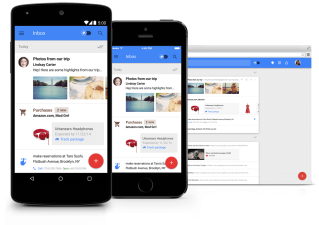Paul Adams, inventor of Google+ Circles, and an all-around smart guy, wrote a post I shared earlier today on Facebook about basically the death of “the destination”. His post really resonated with me. I’ve long wondered, with the death of Google Authorship among other things being removed from Google+, if plus.google.com would stick around, instead being favored as just a layer across all Google products (Google+ therefore still definitely having a future). I’ve come to the conclusion of this: The idea of “a news feed” will be dead in the next 5 years. Facebook as you know it will be gone. Twitter as you know it will be gone. So will plus.google.com. Heck, arguably Google.com will be gone too.
Instead, the status update will still exist. Privacy will still exist. Your social graph will still exist. So will all the meta data about you – your phone location, likes, interests, and much, much more. But you won’t have to “go somewhere” to see all this stuff or consume it. It will all just be delivered to you as you need it.
Imagine getting updates on your phone, or watch, or Google Glass equivalent saying “because you like Google, your friend just said, …” Or, you go by a good restaurant and up pops a message saying, “So-and-so was just here and posted this picture”. Or, “We know you love pictures of spiders. Terrie Gray (Louis Gray’s Mom takes amazing macro photography) just posted some really awesome pictures of spiders you’ll want to see.”
This is the direction we’re headed. We’re actually almost already there with things like Google Now, Safari notifications, the lock screens on your phones, Facebook Home, and more. The truth is, the concept of “a news feed” or destination site like plus.google.com or facebook.com will soon no longer be necessary. This is why Google Inbox just launched. It’s why my phone is getting smarter and smarter, and why Apple and Google are now launching watches. It’s why Google launched Google Glass.
It’s also why Google is removing features like Google Authorship from Google+. The fact is, SEO will no longer exist in the next 6-7 years, all in favor of contextual optimization. What does that mean for a marketer? It means instead of trying to optimize what your content says and how it appears when someone searches for it, you’ll instead be trying to understand your exact audience for your content, what their location is, where they could be consuming it, and adapting different versions of your content for all sorts of different audiences. You’ll also be building apps to take advantage of all the sensory data available from your audience and building contextual experiences around that.
I finally think I figured it out though. Google+ isn’t going away. Neither is Facebook. It’s the News Feed, and in some ways, search, that are going away in favor of contextual experiences that aren’t destinations. The data and experience is still all there though – it just follows you, instead of you having to go towards it. Mark my words. This is our future.


I can buy into your thoughts here. We currently have lots of apps that can give me context. Even today I don't really care if it's facebook.com, or plus.google.com, or yelp or foursquare that gives me my context. That's what I love about my LG G watch, it just gives me information.
Does the personal destination disappear as well? thomallen.com is no longer a destination, but becomes part of what? Nothing? Does some app aggregate my thoughts, or do we rely on plus.google or facebook to share our content which becomes part of the context? Or does individual writing morph into something else?
I'm just trying to get your thoughts on how maintaining a personal site versus a hosted site like facebook, and how they deliver context.